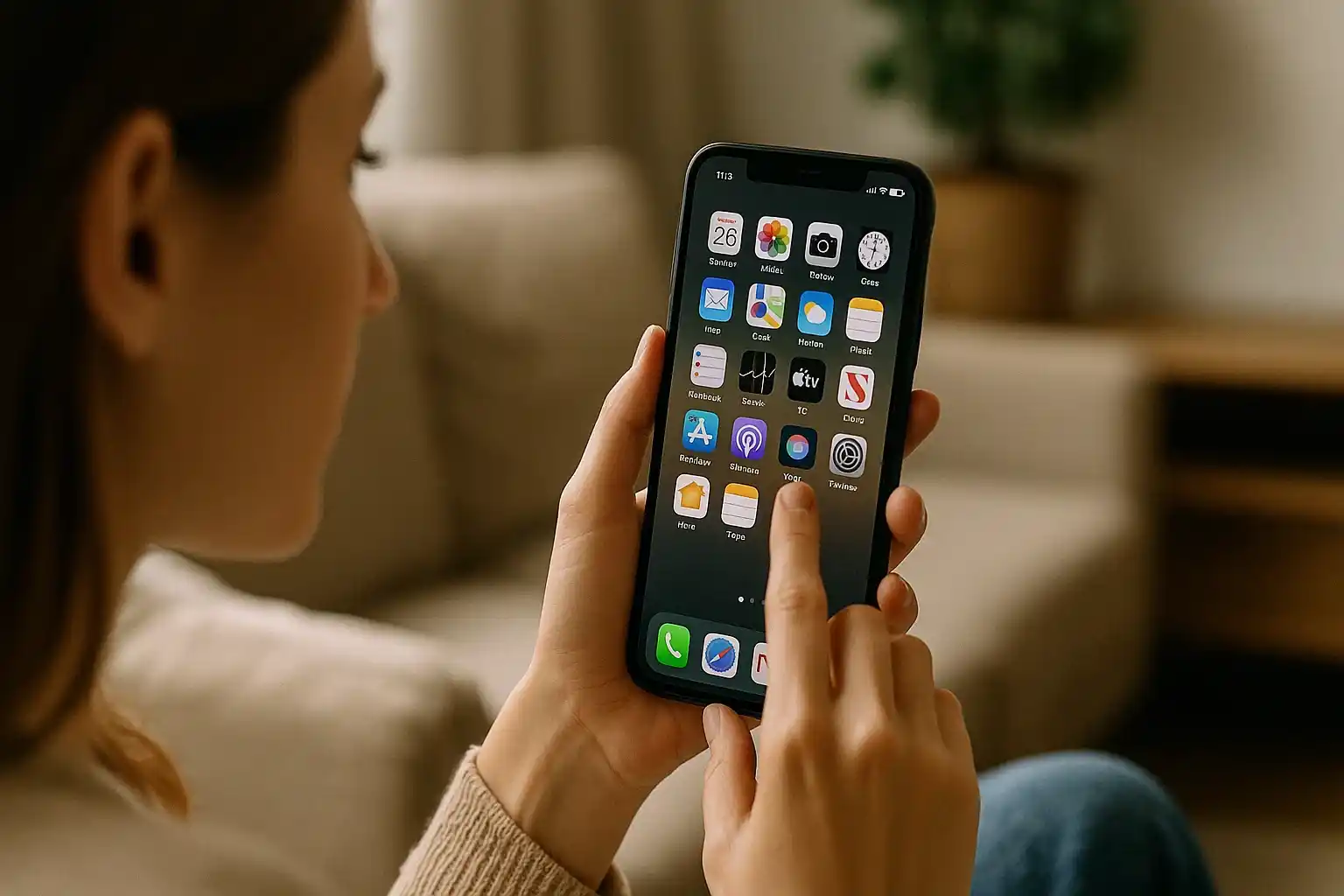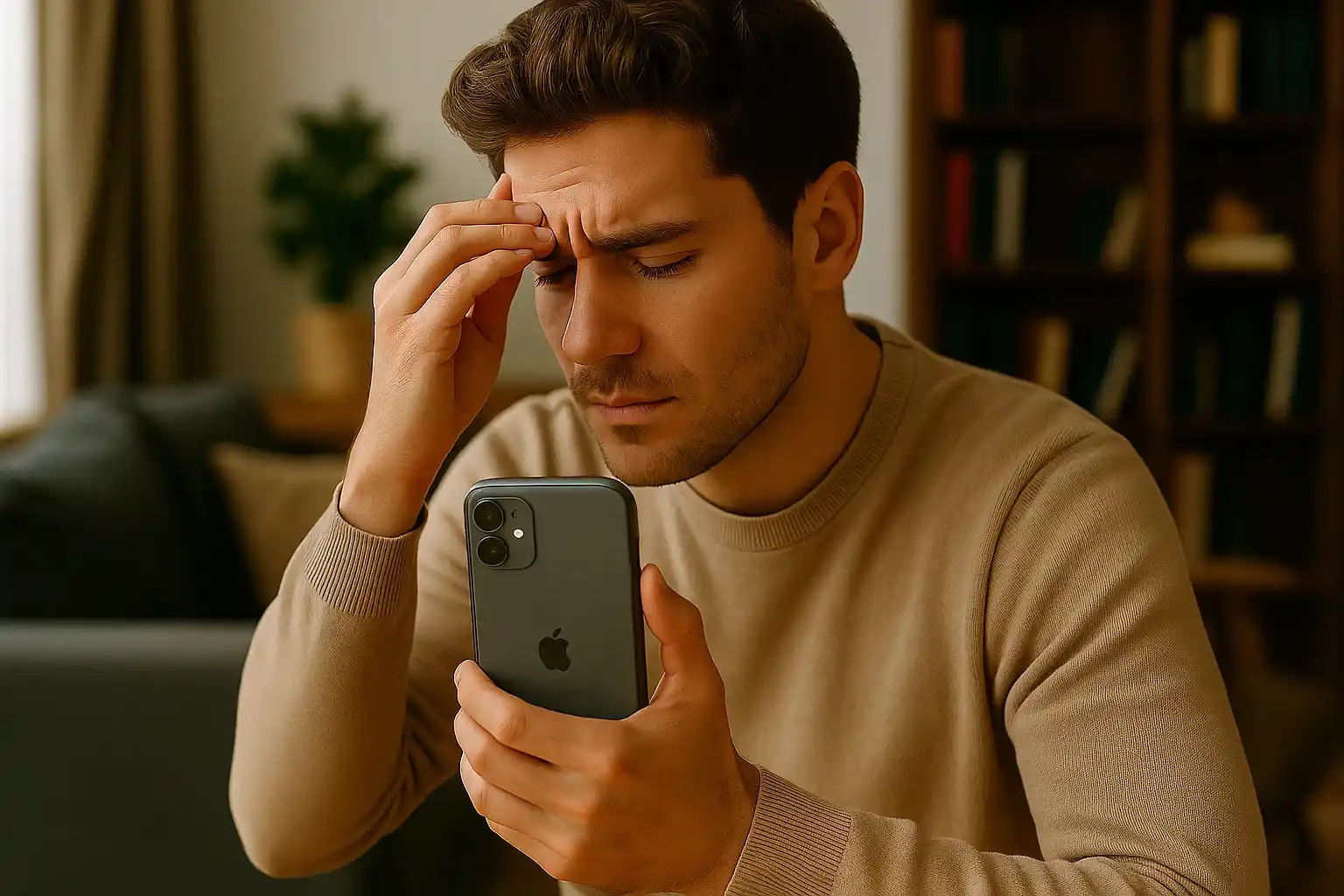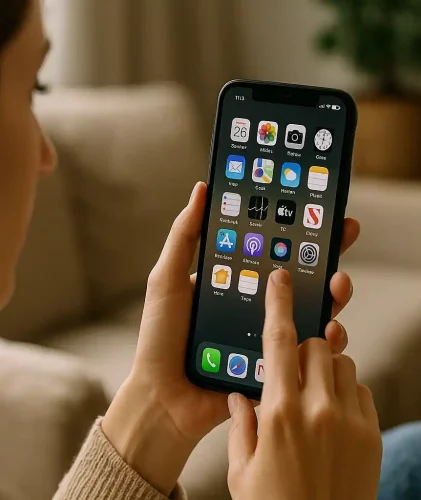Open your phone right now. Scroll through all your apps. How many do you actually use every day? Once a week? Once a month? If you’re like most people, the answer is… not many. In fact, studies show that the average smartphone user has over 80 apps, but uses fewer than 10 on a regular basis. The rest are digital dust collectors.
And yet, we keep downloading, but why? Because apps are no longer just tools – they are products, sold to us with the same tactics as fast fashion or fast food: flashy promises, a rush of convenience, and little follow-through. We think we are optimizing, but in reality, we are just cluttering.
And much like users who ask “does sharing location drain battery?”, we tend to worry about minor drains – while missing the far bigger one: dozens of apps quietly stealing attention, time, and even trust.
So where is the line between useful tools and useless applications that give the appearance of control? What are the signs of “digital trash”? And most importantly, how can we identify the really necessary tools that do what they promise to do among all this noise? So let us get to the bottom of it.
From Flashy to Flimsy: How Fake Value Apps Hook You
Some apps are designed not to be useful, but to look useful. They mimic utility but deliver fluff. Let us consider a few usual suspects:
1. Weather Overkill Apps
Those “hyper-local, futuristic radar” apps? Many of them recycle the same public weather data. What is unique is the invasion of ads and requests to track your location all day long.
2. “Phone Cleaner” Apps
You’ve seen them – claiming to speed up your phone, remove junk, and cool the CPU. But most do nothing your phone doesn’t already do on its own. Many just push ads or upsell you to a “pro” version.
3. Wellness and Fitness Scams
Sleep trackers that can’t track sleep. Step counters with questionable accuracy. Meditation apps that lock 90% of their content behind a paywall. These apps use good intentions but offer nothing of substance.
Red Flags: How to Spot Digital Junk Before It Spreads
Not every app with a sleek logo or trending status deserves a place on your phone. The problem is, junk software rarely announces itself with a neon sign – it sneaks in under the pretense of “productivity”; “security” or “lifestyle”. And once installed, these apps often do more harm than good: draining battery, slowing down your system, and even mining your data under the guise of usefulness.
So, next time you are about to hit “Download,” ask yourself:
- Does this app ask for unnecessary permissions?
- Are the updates of the app infrequent?
- Does the app bother you with irrelevant notifications?
- Are the reviews real – or generic and outdated?
- Is the interface more about looks than actual function?
These are not just minor annoyances – they are red flags that indicate more serious problems. An app that hasn’t been updated in over a year is likely not compatible with current OS versions and poses a security risk. Similarly, apps that bombard you with push notifications are designed to get your attention, but not to do you any good.
Tip: Use the privacy labels in your app store. These transparency tags can help you understand what the app really does behind the scenes. If the app is vague about how it handles data – or if it hasn’t disclosed that information at all – that is a huge sign to back out. Digital hygiene starts with awareness, and your download habits are the front line.

What Makes an App Truly Useful: Practical Recommendations
We live in an age where app stores are overflowing with options – but most of them solve problems you didn’t even have. So how do you tell which apps actually deserve space on your phone? A truly useful app doesn’t just look good or go viral – it earns its place due to delivering real value every time you open it.
Useful Means Purposeful, Not Just Pretty
A valuable app should do one thing well – and do it consistently. Due to the app you should solve a specific problem, be it organizing your schedule, protecting your finances, or simplifying communication. You shouldn’t need a manual to use it, and it shouldn’t crash every other update. More importantly, it should respect your time and your data, it means no shady permissions, no vague privacy policies, and no constant begging for upgrades.
And here is a secret many forget: the best apps get out of your way. They work quietly in the background, making life easier without demanding constant attention. Their benefits are felt more than seen – in time saved, tasks completed, or peace of mind earned.
Spotlight: Number Tracker and What It Gets Right
Let us look at the Number Tracker app, a standout example in the crowded world of location-based apps. Unlike the many sketchy GPS tools that offer little control or clarity, this app is created around transparency, consent, and mutual benefit.
Here is why it works:
- It solves a real-world problem – helping families and partners stay connected without overstepping boundaries.
- It is privacy-first – tracking can only be enabled by mutual agreement, and data is never misused.
- It adds real value – the app can offer you some useful features, e.g., safe zones, route history, and common sharing that foster trust rather than suspicion.
Where most location apps turn into hidden surveillance tools, Number Tracker becomes a quiet layer of reassurance – a tool that helps without invading. And that is the essence of a truly useful app: it respects your needs, your attention, and your boundaries.
How to Declutter Your Phone and Reclaim Control
We spring-clean our closets, empty out junk drawers, and organize desks – so why do we leave our phones overloaded with digital noise? A cluttered phone is not just annoying; it slows down performance, eats battery, and hijacks your attention, thus it is time to take back control of your digital environment.
The Digital Audit: Start with What You Actually Use
Begin with a simple reality check: open your screen time or app usage stats. Chances are, the apps you use daily can be counted on two hands. The rest is just the background noise. Here is how to clean house:
- Step 1: Check usage stats – if you haven’t opened it in 30 days, it’s a candidate for deletion.
- Step 2: Sort by purpose – entertainment, productivity, utility. Are there overlaps?
- Step 3: Remove the duplicators – do you really need five photo editing apps or three notepads?
Now that your phone is lighter, let’s keep it that way.

Smart Choices: What’s Worth Keeping?
Not all apps are clutter, as some genuinely serve a function in daily life – they save time, reduce stress, or keep us informed without overwhelming us. Below is a quick snapshot of useful apps worth keeping, with examples from popular categories.
| Category | App Example | Why It’s Worth Keeping |
| Task Management | Notion, TickTick | Helps structure goals, reminders, and shared plans |
| Fintech and Budgeting | YNAB, Revolut | Tracks expenses, sends alerts, improves financial habits |
| Location Sharing | Number Tracker | Provides real-time tracking with consent-focused design |
| Secure Messaging | Signal, Telegram | Prioritizes privacy with end-to-end encryption |
| Health and Fitness | MyFitnessPal, Sleep Cycle | Encourages healthy habits through meaningful insights |
Quick tip: Try a 7-day detox: move all non-essential apps into one folder and avoid opening them for a week. By the end, you will know exactly which ones you didn’t miss – and can probably delete without hesitation.
Less and Better
True efficiency starts with your conscious choices. Not every icon on your screen makes your life easier – but every icon occupies your attention. So make room not only in your phone’s memory, but also in your head: remove what distracts you and leave only what helps.

